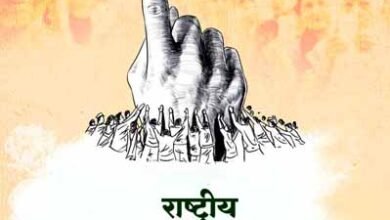
Lal Bahadur Shastri is remembered as one of India’s most illustrious leaders, known for his unwavering commitment to the cause of freedom and his remarkable statesmanship. Born on October 2, 1904, in Mughal Sarai, Uttar Pradesh, Shastri’s life was a testament to his dedication to the principles of justice, equality, and non-violence. His journey as a statesman and leader in India’s struggle for freedom is a remarkable chapter in the nation’s history.
Shastri’s early life was marked by humble beginnings, and he experienced firsthand the hardships faced by ordinary Indians under British colonial rule. This upbringing instilled in him a deep sense of empathy for the masses and a burning desire to see India free from the shackles of imperialism. His involvement in the non-cooperation movement led by Mahatma Gandhi during the 1920s exemplified his commitment to the cause.
One of Shastri’s most significant contributions to India’s struggle for freedom was his involvement in the Salt Satyagraha of 1930. He marched alongside Gandhi to break the salt laws, symbolizing the defiance against unjust British taxation. This act of civil disobedience resonated with millions and further galvanized the nation’s resolve to gain independence.
After India finally achieved independence in 1947, Shastri’s role as a statesman came to the forefront. His dedication to building a strong, united, and democratic India was unwavering. He held various ministerial positions in the government, but it was during his tenure as the Prime Minister that he truly shone as a leader of exceptional stature.
One of Shastri’s most testing moments as a statesman was the Indo-Pakistani War of 1965. His leadership during this conflict showcased his resilience and determination to protect India’s sovereignty. His famous slogan “Jai Jawan, Jai Kisan” (Hail the Soldier, Hail the Farmer) captured the essence of his leadership, acknowledging the sacrifices of both the armed forces and the agricultural community. Under his leadership, India managed to secure a ceasefire and maintain its territorial integrity.
Shastri’s statesmanship was not limited to external conflicts; he also championed social and economic justice. His focus on the Green Revolution transformed India’s agricultural landscape, ensuring food security for millions. He emphasized the importance of self-reliance and promoted policies that aimed at reducing poverty and inequality.
Tragically, Shastri’s life was cut short on January 11, 1966, under mysterious circumstances while he was in Tashkent, Uzbekistan, for peace talks with Pakistan. His sudden demise was a great loss to the nation, but his legacy lives on.
In conclusion, Lal Bahadur Shastri’s journey from a humble background to becoming a statesman of great repute and a leader in India’s struggle for freedom is a remarkable testament to his character and vision. His commitment to the principles of truth, non-violence, and social justice made him a towering figure in the annals of Indian history. His leadership during turbulent times, both in the fight for independence and as Prime Minister, left an indelible mark on the nation. Lal Bahadur Shastri remains an enduring inspiration, embodying the ideals and aspirations of a free and democratic India.
Dr. Jay Ram Jha (Editor).





